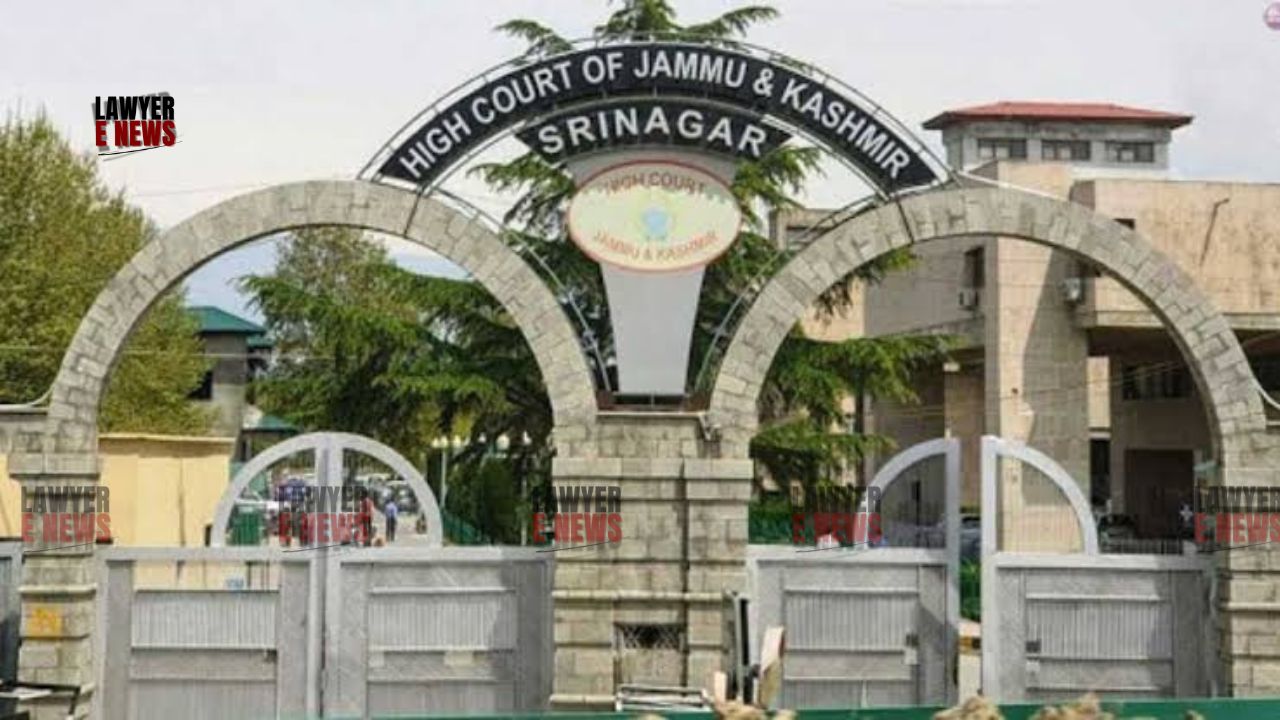-
by Admin
15 February 2026 5:35 AM



Court emphasizes minimal judicial intervention in tender matters, upholds public and national security interests - The High Court of Jammu & Kashmir and Ladakh, led by Justice Wasim Sadiq Nargal, has revised an interim order affecting critical government construction projects related to national security. This decision highlights the need to balance interim judicial relief with public interest and national security considerations.
The case arose from a dispute involving M/s A L Construction, the petitioner, and the Union Territory of Jammu and Kashmir, along with other respondents. M/s A L Construction challenged the nullification of their work completion certificates, which were essential for their participation in new contractual works. The interim order dated 01.03.2023, had stayed the communication that declared these certificates null and void. This stay order, however, had halted the progression of significant government projects, including the construction of IRP Battalion Headquarters at Kishtwar and the Anti-Corruption Bureau Office at Doda. These projects, funded by the Ministry of Home Affairs, are of paramount importance for national security and public interest.
Necessity of Interim Relief Versus Public Interest: The court meticulously examined the necessity of the interim relief versus the implications for public interest. Justice Nargal recognized the adverse impact of the interim order on projects critical to national security. Senior AAG Mrs. Monika Kohli argued that the interim order was hindering projects monitored at the highest levels of government, emphasizing that public interest and national security should take precedence.
Judicial Review in Tender Matters: In its ruling, the court reiterated the principles established by the Supreme Court regarding minimal judicial intervention in tender disputes. Key precedents cited included Tata Cellular v. Union of India and Afcons Infrastructure Ltd. v. Nagpur Metro Rail Corporation Ltd., which underscore the importance of judicial restraint in administrative decisions.
Justice Nargal observed, "Judicial intervention in the tender process should be minimal to preserve institutional autonomy. The government must have the freedom of contract, and courts should exercise restraint unless there is clear evidence of mala fides, arbitrariness, or irrationality."
Justice Nargal emphasized, "The continuation of the interim direction is harshly working against the interest of the respondents involving public interest and security of the State. It is beyond any cavil of doubt that before passing an interim order, the Courts should also consider the effect on public interest. The public interest, in the instant case, demands that the project should not be stalled."
The court's legal reasoning was firmly grounded in Supreme Court precedents, emphasizing the limited scope of judicial review in administrative decisions, particularly in public contracts. Justice Nargal highlighted the Supreme Court's stance in cases like Air India Ltd. v. Cochin International Airport Ltd., which stressed that judicial intervention should occur only when there is overwhelming public interest.
Referencing Silppi Constructions Contractors v. Union of India, the court reiterated that judicial scrutiny should be exercised with great restraint, especially in commercial matters involving technical expertise beyond the court's domain.
The High Court's modification of the interim order underscores the judiciary's commitment to ensuring that legal proceedings do not hinder projects of national importance. By allowing the continuation of the tender processes subject to the final outcome of the writ petition, the judgment balances the need for judicial oversight with the imperatives of public interest and national security.
Date of Decision: 10th May 2024
M/s A L Construction VS UT of Jammu and Kashmir and others
